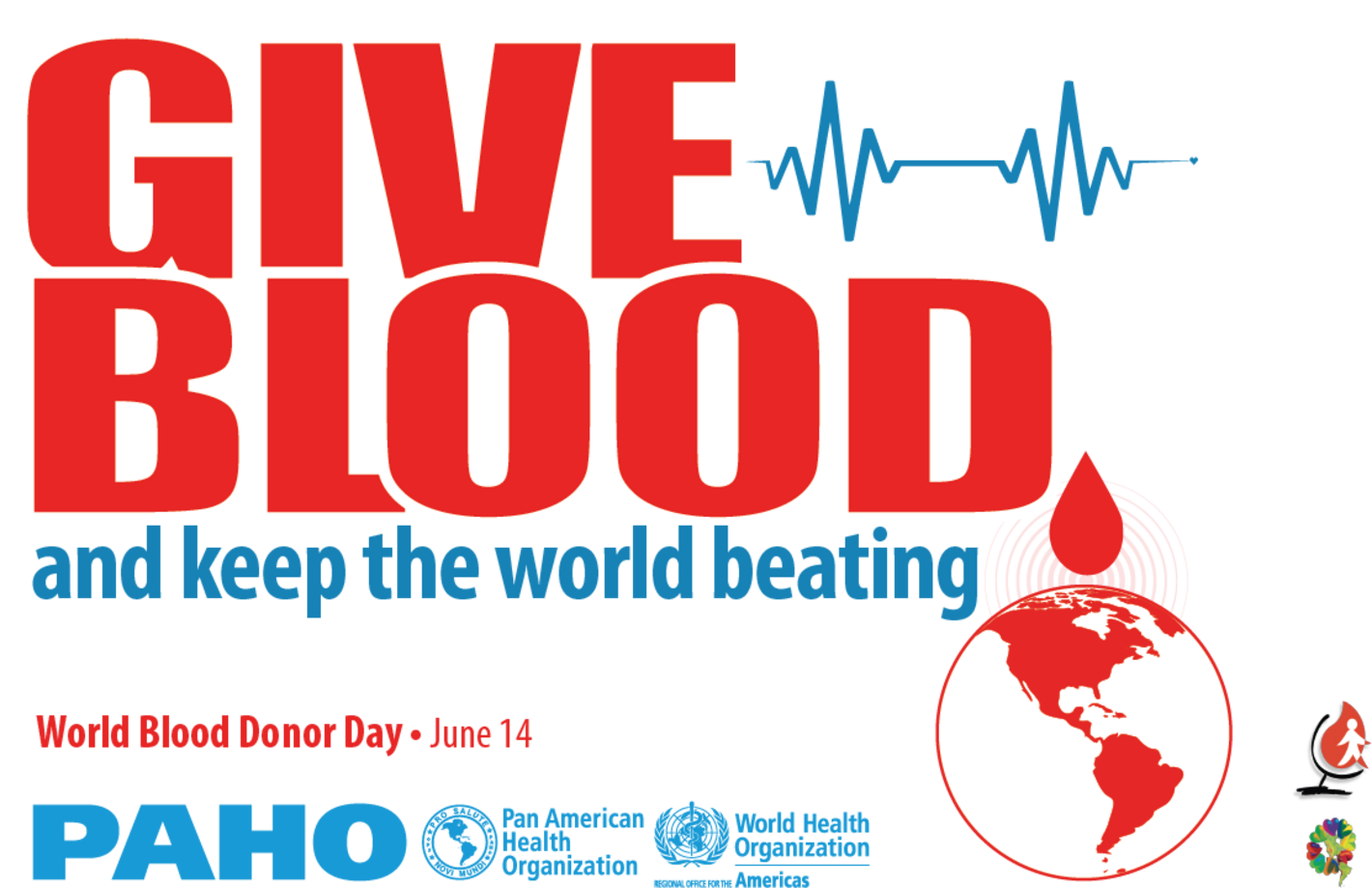
Washington DC, June 20, 2021 (PAHO) - The Pan American Health Organization (PAHO) held the Virtual Forum for the Promotion of Voluntary Blood Donation where countries presented initiatives implemented in the Region, oriented to the community, including the participation of young people, in voluntary and altruistic blood donations.
With over 300 participants, the Forum took place on 16 June and was part of the World Blood Donor Day 2021 celebrations that focused on the role of young people in ensuring a safe blood supply.
Representatives from Argentina, Bahamas, Brazil, Cayman Islands, Colombia, Honduras, Mexico, Paraguay, and Peru presented their experiences to improve access to blood donation, initiatives to address donation in times of COVID-19, and the training of community promoters and of interdisciplinary groups in the countries. Likewise, the role of social media in education processes and the different strategies for reaching young people were addressed.
“This Forum seeks to recognize the daily contribution that non-remunerated volunteer donors make in our Region of the Americas,” said Jarbas Barbosa, Deputy Director, PAHO. “In this time of COVID-19, where we have lived under so much uncertainty, these donations have represented hope for the thousands of people who have required a transfusion.”
The speakers highlighted the community values of donating blood to strengthen community solidarity and social cohesion, visible in the work carried out by promoters of voluntary donation in 16 countries of the Region.
Donating blood relies on people who donate voluntarily, to ensure supply, and repeatedly, to make blood a safer product. Most Latin American countries report that the units of blood obtained come from replacement donors and very few countries report regular or repeating donor data, which highlights the need to work on strategies to promote voluntary donation.
"It is important that we reflect on the age of blood donors, those under 24 years old represent only 30.6% of the donor population," said Jarbas Barbosa.
“In many countries, young people have been at the forefront of activities and initiatives aimed at achieving a safe blood supply through voluntary non-remunerated donations and through actions to promote donation,” said Mauricio Beltrán, PAHO’s regional advisor on blood services.
During the Forum, the experiences presented by the countries highlighted the governance, structure, and capacity of services aimed at improving access to donation, and various strategies to reach the community.
"The range of experiences presented make it clear that three approaches converge in the promotion of voluntary donation, but all are essential: governance, services, and community, all to create the structure for access to donation, education and community mobilization," said Mauricio Beltran.
During the COVID 19 pandemic, there was a decrease in blood donation due to measures such as confinement, social distancing, implementation of biosafety measures, and fear of contagion, among others. "We encourage all National Authorities to continue and strengthen the promotion of voluntary, non-remunerated, and repeated blood donation," said Jarbas Barbosa. "We must advance in the commitment to stimulate the renewal, and linking of new community actors, to the efforts carried out by the programs and services in the promotion and retention of voluntary blood donors," he added.
PAHO has collaborated with the countries of the Americas to ensure safe blood supply during the pandemic. PAHO/WHO has developed guidelines for safe blood donation during the pandemic and provided recommendations for mitigating the decline in availability of blood and blood products.
In 2020, at the 58th PAHO Directing Council, PAHO published a report describing the results obtained after the implementation of the Plan of Action for Universal Access to Safe Blood for the period 2014-2019, approved by the countries in 2014. The report indicates that 22 countries already have a national blood plan and 19 countries have improved efficiency and are processing more than 5,000 units of blood per blood bank/year, an increase that is due to higher blood collection rates in some blood services.
World Blood Donor Day is celebrated every year on June 14 around the world. This event serves to raise awareness of the need for safe blood and blood products for transfusions from voluntary and non-remunerated donations and to thank donors for their life-saving gift of blood.



